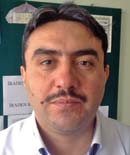Articles in the GNSS Category

As more GNSS satellites will be operational within the next few years, the confidence of the position and timing solution for the user is expected to increase. On the other side from the integrity point of view the user faces new problems. It has to protect itself against more potential failures that might occur…

Galileo is Europe’s contribution to the multi-GNSS to provide a highly accurate, guaranteed global positioning service under civilian control. Offering dual frequencies as standard, Galileo is expected to deliver extremely good realtime positioning accuracy. From users’ point of view, availability of Galileo’s signal would help in achieving a multi- GNSS environment for redundancy and system independence.

The territory of the Balkan Peninsula (BP) is one of the most active geodynamical regions in Europe. Numbers of publications are devoted to this problem. An important indicator in geodynamical point of view is an eventual station movement of GNSS network stations. Determination of the size and direction of the vectors of movement, their analysis and assessment is of significant importance for their further interpretation with a view to present the geodynamical picture of the region.

Global Navigation Satellite System (GNSS) technology has revolutionised the way 3-dimensional positions are determined on and above the Earth’s surface. GNSS-based positioning has become a vital tool for a wide range of applications in areas such as surveying, mapping, asset management, precision agriculture, engineering and construction. A lesser known application that has benefited immensely from the introduction of GNSS technology is animal tracking.

Indian Regional Navigation Satellites System (IRNSS) is the world’s fi rst regional navigation system with its footprint primarily over the Indian subcontinent. The system is expected to have seven satellites in all, with three satellites in GEO stationary and four in GEO synchronous orbits (Kibe & Gowrishankar 2008). IRNSS is dual use and supports two frequencies on either service of operation.
The information on orbital parameters, navigation signals and technical characteristics of systems and networks in the radionavigation-satellite service (RNSS) (space-to-Earth, space-to-space) operating in the bands 1 164-1 215 MHz, 1 215-1 300 MHz, and 1 559-1 610 MHz are presented in this Recommendation.

Today global navigation systems have become a part of our everyday life. It is part of many useful things and assisted people in many ways. It is part of the marine, aircraft and traffic issues – from private user up to logistic cooperation. Also it is used in agricultural companies for precise farming as well as for information systems in all kind of tasks like geology, archeology, hydrology and a lot more. In the sector of engineering, it supports and guides the construction machines.











 (5.00 out of 5)
(5.00 out of 5)